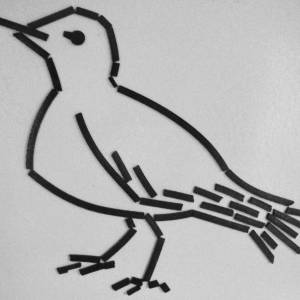Old School
She hated a mown lawn. Maybe that was because mow was the reverse of wom, the beginning of the name of what she was—a woman. A mown lawn had a sad sound to it, like a long moan. From her, a mown lawn made a long moan. Lawn had some of the letters of man, though the reverse of man would be Nam, a bad war. A raw war. Lawn also contained the letters of law. In fact, lawn was a contraction of lawman. Certainly a lawman could and did mow a lawn. Law and order could be seen as starting from lawn order, valued by so many Americans. More lawn could be made using a lawn mower. A lawn mower did make more lawn. More lawn was a contraction of more lawmen. Did more lawn in America make more lawmen in America? Did more lawn make more Nam? More mown lawn made more long moan, from her. Or a lawn mourn. So often, she said, Americans wanted more mown lawn. All of America might be one long mown lawn. A lawn not mown grows long, she said: better a long lawn. Better a long lawn and a mole. Let the lawman have the mown lawn, she said. Or the moron, the lawn moron.
A Mown Lawn, by Lydia Davis
This poem made quite an impression on me when it appeared in The Best American Poetry 2001.
We tend to let our "lawn" run a bit free, but seeing as we rent there are limits. My wife recently suggested we might go "old school" and get one of these push mowers. She obviously does not share my childhood memories of living on a corner lot with a big backyard. They are cheaper, but I'm still not entirely convinced. In fairness, she mows the lawn more often than I do, so the jury is still out.

Comments
Sign in or get an account to comment.


